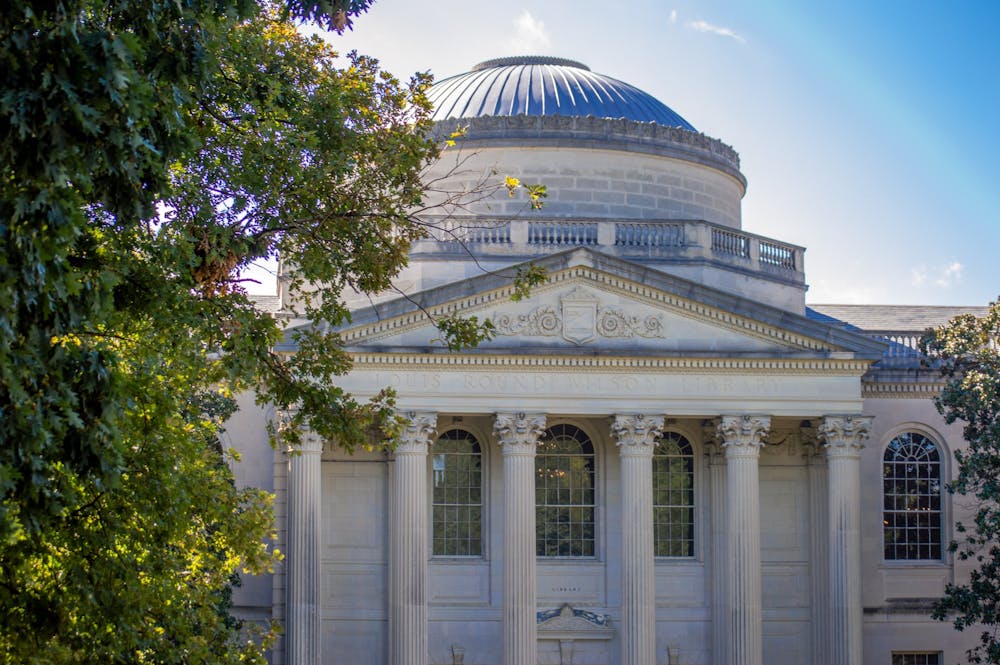To some UNC students, Wilson Library is a stoic, sometimes intimidating place to study. But in the 1970s, the basement hallway served as a safe meeting space for LGBTQ+ students — mostly gay men — to congregate and to exchange ideas among the archival stacks.
Told by alumnus Larry Alford, this is one of several oral histories featured in Queerolina — an online oral history exhibit in collaboration with Wilson Library's Special Collections, the Southern Oral History Program and the UNC Department of Communication.
UNC alumna Cassie Tanks, who helped create the project with UNC Ph.D. candidate Hooper Schultz, described how the exhibit uses the idea of “rival geographies” to tell the history of the LGBTQ+ community at UNC.
The idea of a “rival geography” — a contradiction in values between a place and the people that occupy it — is what inspired Tanks and Schultz to create an interactive map of the UNC campus, accompanied with the oral histories of students and alumni speaking about their queer experiences in those places.
For Tanks, the Wilson Library basement represented an archetypal rival geography.
“I just felt like that was such a great example of how you have this record-keeping system or archive that's the embodiment of a power structure and have this group of young men who aren't what that power structure envisions or was built for using that place to create their own space,” she said.
The UNC Story Archive, a part of Wilson Library's Special Collections, is a new archival collection where people can add their voice to the University's historical record through interviews, monologues and digital images of their experiences, Tanks said.
Nicholas Graham, a University archivist, said that the Special Collection’s mission is to collect official records from student groups and alumni and use those to share and to teach campus history.
“Queerolina is a terrific example of a way that we can take archival materials and really bring them to life and make it easy for people to access and discover and learn about aspects of campus history,” he said.




